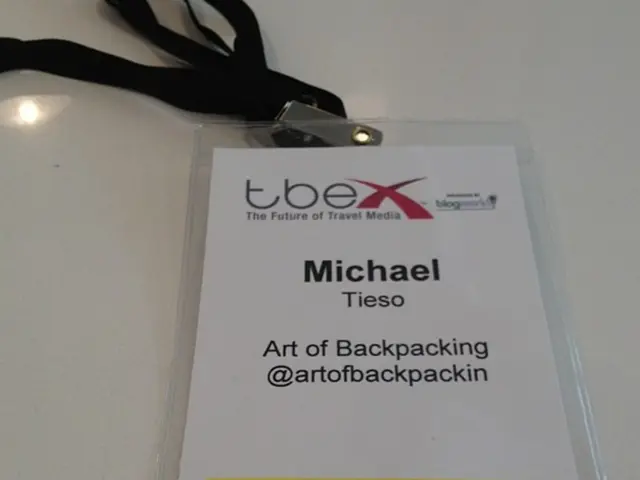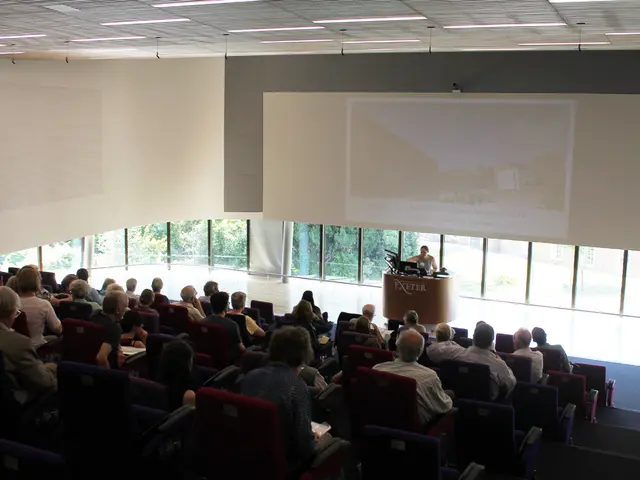Comparative Analysis: The Advantages and Disadvantages of Online and Conventional Education Settings
Edifying yourself is a crucial part of life and career development, and the digital age has brought significant changes to the educational landscape. Today, learners can opt for online or traditional brick-and-mortar institutions to further their studies. Let's delve into the differences between these learning styles, highlighting their pros and cons.
Flexible Timetables
One of the primary advantages of online education is its adaptability. Students have the freedom to access coursework and lectures at a time and place that suits them, as long as they have an internet connection. This flexibility empowers individuals to manage their education alongside other commitments like work or family obligations.
On the contrary, traditional education adheres to a fixed schedule, mandating students to attend classes at specific times and locations. This inflexibility can pose challenges for those with busy schedules or remote living conditions.
Budget Matters
With respect to costs, online education tends to be more budget-friendly compared to conventional education. Online courses often boast lower tuition fees due to reduced expenses related to maintaining physical campuses and facilities. Additionally, students can save on transportation costs and other expenses associated with attending in-person classes.
Conversely, traditional education tends to be pricier due to higher tuition fees and additional costs like textbooks, transportation, and housing. However, traditional educational institutions may offer financial aid, scholarships, and grants to help offset expenses.
Interaction and Collaboration
Traditional education excels in providing face-to-face interaction and collaboration opportunities. Students benefit from engaging in real-time discussions with classmates and teachers, fostering a strong sense of community and allowing for immediate feedback and clarification.
While online education incorporates discussion forums and virtual classrooms for interaction, it may lack the personal connection found in traditional education. Some students might find it difficult to build connections with peers and instructors within a virtual setting.
Resource Richness
Both online and traditional education offer access to resources, albeit in different formats. Traditional education offers physical resources like libraries, laboratories, and classrooms, providing opportunities for hands-on experimentation and research.
On the other hand, online education offers digital resources like e-books, online libraries, and multimedia materials, which can be easily accessible and frequently updated.
Quality and Recognition
Quality and accreditation are paramount when picking an educational path. Traditional educational institutions enjoy a long-standing reputation and accreditation from respected bodies, assuring the education they provide meets certain academic standards.
Online education has made significant strides in improving quality and accreditation in recent years. Reputable universities and institutions now offer online programs with accreditation from established accrediting bodies. To ensure the integrity of online education, it is essential for students to research and verify the accreditation status of their chosen program.
End Note
Both online education and traditional education offer their distinct advantages and disadvantages, making the choice a matter of personal preferences, learning style, and specific circumstances. To maximize your potential and achieve your educational goals, it's essential to choose a learning path that aligns with your aspirations—whether it's online education or traditional education, both provide valuable knowledge and skills for personal and professional growth.
Advantages of online education encompass flexible timetables, allowing learners to access coursework and lectures at their own convenience, and cost-effectiveness as lower tuition fees and decreased expenses related to facilities make it more budget-friendly compared to traditional education. On the contrary, traditional education offers face-to-face interaction for stronger community building, providing physical resources like libraries and laboratories for hands-on experimentation. Quality and accreditation are crucial as both traditional and online education have established institutions offering accredited programs.








